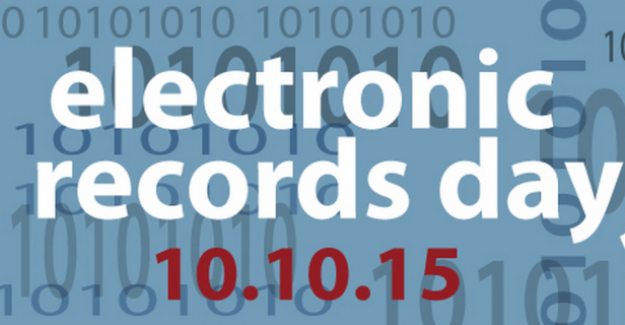10 reasons e-records deserve greater focus

Maintaining an electronic record in state government is “like caring for a perpetual toddler,” according to a tip sheet published by the Council of State Archivists: It requires constant vigilance.
As part of a weeklong celebration ahead of the fourth “Electronic Records Day” on Oct. 10, the group released a list of “10 Reasons Why Electronic Records Need Special Attention.”
“We’re raising awareness for why electronic records are a growing concern, why they require special care, and then advocating for more aggressive action to care of them in the future,” Kristopher Stenson, one of the primary organizers of the awareness day, told StateScoop.
Since the group started “Electronic Records Day,” Stenson said interest in the event has skyrocketed. This year, the council is partnering with other governmental groups to promote the day. On Monday, the National Association of State Chief Information Officers announced that it would be observing “Electronic Records Day,” and that it would stress the day’s goals among its members.
To develop the list, the council culled a “variety of scholarship and articles that have come out over the years,” Stenson said. He added, “It’s a fairly well researched field within our field, but it’s not always well communicated outside of our field.”
Below is the full list. Other resources are available on the group’s website.
10 reasons why electronic records need special attention
1. Managing electronic records is like caring for a perpetual toddler: They need regular attention and care in order to remain accessible.
2. Electronic records can become unreadable very quickly. While records on paper have been read after thousands of years, digital files can be virtually inaccessible after just a few.
3. Scanning paper records is not the end of the preservation process: It is the beginning. Careful planning for ongoing management expenses must be involved as well.
4. There are no permanent storage media. Hard drives, CDs, magnetic tape or any other storage formats will need to be tested and replaced on a regular schedule. Proactive management is required to avoid catastrophic loss of records.
5. The lack of a “physical” presence can make it very easy to lose track of electronic records. Special care must be taken to ensure they remain in controlled custody and do not get lost in masses of other data.
6. It can be easy to create copies of electronic records and share them with others, but this can raise concerns about the authenticity of those records. Extra security precautions are needed to ensure e-records are not altered inappropriately.
7. The best time to plan for electronic records preservation is when they are created. Don’t wait until software is being replaced or a project is ending to think about how records are going to be preserved.
8. No one system you buy will solve all your e-records problems. Despite what vendors say, there’s no magic bullet that will manage and preserve your e-records for you.
9. Electronic records can help ensure the rights of the public through greater accessibility than ever before, but only if creators, managers and users all recognize their importance and contribute resources to their preservation.
10. While they may seem commonplace now, electronic records will form the backbone of the historical record for researchers of the future.






